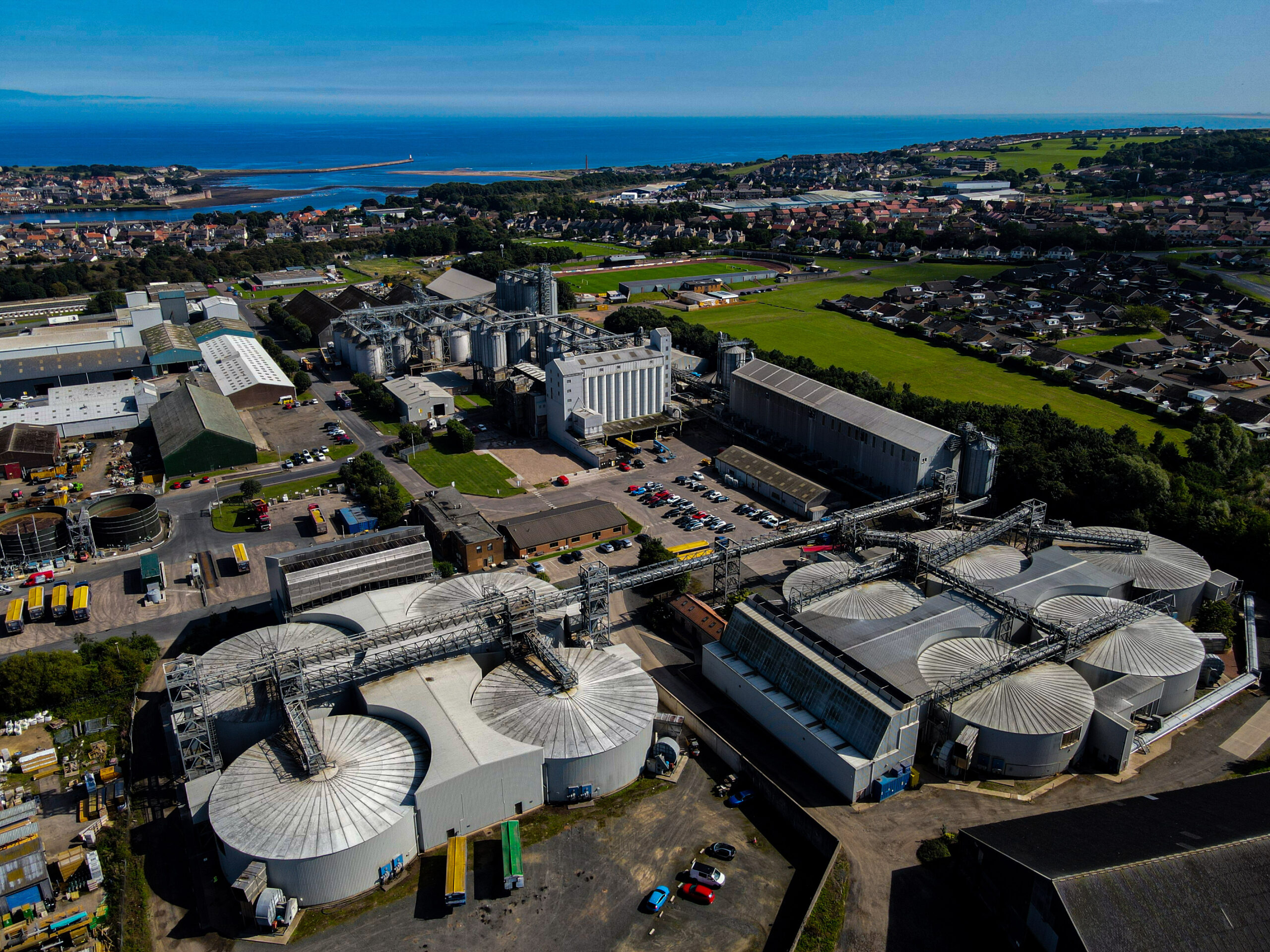
Groundbreaking project to help decarbonise Scotch Whisky industry
Plans for a groundbreaking project to help decarbonise the Scotch Whisky industry have been announced – saving 25,000 tonnes of carbon each year.
The £45m AMP Clean Energy project will see an energy centre containing electric and biomass boilers built at the UK’s largest malting site.
The energy generated at Simpsons Malt Limited’s Tweed Valley Maltings, in Berwick-upon-Tweed, will displace fossil fuel gas currently used in the production of malt.
The project will save the same amount of gas used by 11,000 homes each year and reduce carbon emissions at the UK’s largest malting site by around 80%.
It takes approximately 2.5kg of malt to produce just one litre of whisky meaning the new process will save 275g of carbon for every litre of whisky produced.
This cutting-edge project reinvents local, renewable biomass fuel as an energy storage mechanism which can be used during periods when there is no excess renewable electricity generation and kick-starts the electrification of industrial heat.

default
For the first time in the UK, a high voltage electrical boiler will be powered by wind energy that would have otherwise been switched off when there was too much wind, allowing for increased renewable electricity generation and reduced compensation payments to wind energy generators.
In the current energy system, the grid can’t store excess renewable energy at scale or transmit it to other locations so there is no option but to ask wind companies to turn off their turbines on windy days.
As a result, UK consumers are paying operators hundreds of millions of pounds each year through the ‘energy constraint payment’ mechanism.
Mark Tarry CEO AMP Clean Energy, said: ‘We are proud to be able to support Simpsons Malt Limited on their decarbonisation journey with this trailblazing low carbon project that will deliver large scale Scope 1 emission reductions.
‘This initiative is so exciting because it uses local, low value biomass as a form of energy storage that can provide decarbonisation when the wind doesn’t blow.
‘This is the first project of a kind in the UK and the first time a high-voltage electric boiler will decarbonise an industrial heat process.
‘It could be replicated across other industries.
‘This project will save consumers money and drive forward the broader energy transition towards a net zero future.’
The scheme to decarbonise industrial heat generation at the new Energy Centre will be completed next summer.
It will also support the Scotch Whisky sector’s emissions reduction targets.
The sector produces over 1.6bn bottles each year for the international market, worth around £6.2bn.
The biomass boiler will use locally sourced, sustainable wood chip, bringing previously under-managed woodlands into commercial use.
It takes approximately 2.5kg of malt to produce just one litre of whisky meaning the new process will save 275g of carbon for every litre of whisky produced.
Steven Rowley, operations director at Simpsons Malt Limited, said: ‘As a Certified B Corporation, we are committed to minimising the impact of our operations on the environment and operating this Energy Centre at our Tweed Valley Maltings will be an important step in our objective of achieving net zero Scope 1 and Scope 2 emissions by 2030, giving us a company wide reduction of around 55%.
‘As a result, the malt that leaves our Tweed Valley Maltings – 90% of which is destined for the distilling industry – will have a significantly reduced carbon footprint, helping our distilling customers deliver on their own sustainability objectives while also positively impacting the sector as a whole.’
Read more news on Scottish Field’s news pages.
Plus, don’t miss the July issue of Scottish Field magazine.
TAGS

